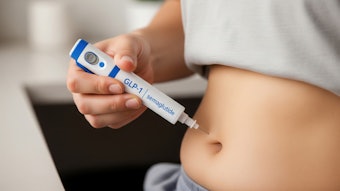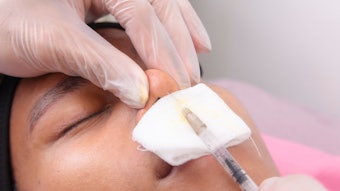
Ozempic is everywhere right now. MedEsthetics has dedicated numerous reports to the growing popularity of the medication. Although Ozempic continues to remain popular and even expand into other industries, emerging safety concerns are spurring conversations about the drug's overall impact on individuals using it for weight loss. While loose skin is a typical side effect of weight loss procedures, Ozempic's effect on facial skin has been significant enough that the effect is now referred to as "Ozempic face."
Patients looking to fix these issues are turning to surgeons outside of the United States and United Kingdom for a variety of reasons including lower costs, a perception of increased quality in care and the continually growing trend of medical tourism and wellness tourism. Patients are planning vacations around these desired trips, allowing them to have a getaway vacation and fix their medical aesthetics concerns in one trip.
Related: Semaglutide's Potential Uses Outside of Weight Loss & The Pushback Against Cosmetic Misuse
Medical Tourism
Medical tourism is a growing concept in medical aesthetics, as well as the spa and wellness industry. Outside of the potential for reduced cost, the rise of medical tourism can partly be attributed to social media influence and a desire for interconnectedness. Medical tourism offers patients more options. The opportunity to see surgeons beyond their geographic area allows them to find a provider that most closely correlates with their personality and goals.
A Medical Tourism Patient Survey revealed that 97.2% of respondents who traveled for medical treatment considered trust to be one of the most critical pull factors. For patients and health consumers, trust comprises transparency, clear communication about treatment costs and other charges, communication about their treatment, credentials of healthcare professionals involved in their care and a concrete medical plan when things do not go as expected, per the report. Respondents also emphasized the critical role of accreditation in the medical travel decision process, as more than two-thirds of the survey's respondents identified accreditation as an important metric for medical travel programs.
Respondents who had not received treatments abroad said that the most significant factors that swayed them were hidden costs, concerns about potential complications and a poorly coordinated post-treatment period.
Ozempic Safety Concerns
While GLP-1 drugs are touted for their efficacy and generally compelling safety profile, they still can trigger nausea, vomiting, diarrhea and other typical side effects. Ongoing research is examining the long-term effects of Ozempic on bone density and muscle loss. Knockoff Ozempic, which surfaced during supply shortages as a result of a spike in popularity, offers more risks. In a consumer survey conducted by 9am Health, 38% of respondents have tried knock-off GLP-1s or black market weight loss products that have not gone through FDA approval in the past.
According to data from America's Poison Centers, there were nearly 3,000 calls involving semaglutide (the main active in Ozempic) from January through November 2023, a 15x increase since 2019. In 94% of calls, semaglutide was the only substance reported.
These calls are mostly from adults ages 40 to 70, with the largest group in the 60-to-69 range, per CNN. They aren’t only related to injections of compounded forms of the drug, but also to the click pen that comes with the prescription drug. In one case, a caller said they were having trouble with the pen and accidentally gave themselves an entire month of doses at once.
Ozempic Face
Rapid weight loss induced by Ozempic can lead to dermatological changes, including increased signs of aging such as lines and wrinkles (now referred to as "Ozempic face”), a hollowed-out appearance and lipodystrophy, which alters the way the body accumulates and stores fat, according to Gediminas Samulenas, M.D., a surgeon at Nordesthetics clinic in Kaunas, Lithuania.
“The active substance of Ozempic is semaglutide, which has absolutely zero direct impact on the skin. It acts by altering insulin-glucose metabolism," Dr. Samulenas said. "Therefore, it leads to weight loss followed by a reduction of facial volume and a relative increase of loose skin. But there is no actual effect on the skin, its laxity/looseness is a consequence of weight loss."
Tautvydas Urbonas, M.D., another surgeon at the clinic, emphasized that individuals who have undergone significant weight loss often share a common desire to lead a normal life and excess skin negatively affects various aspects of their daily existence.
Excess skin tends to accumulate around the arms, legs, neck, and midsection, posing potential discomfort and even pain. The skin condition can also lead to complications like dermatitis or eczema, increasing the risk of skin infections and irritation. Surgical intervention becomes necessary once the weight loss journey is complete, as non-invasive treatments only offer cosmetic improvements, according to Dr. Urbonas.
Patients Travel to Fix Weight Loss Skin Concerns
Nordesthetics Clinic also noted that there is a surge in visits from U.S. patients, with many looking to address excess skin from weight loss. It is not only from Ozempic but also from traditional weight loss procedures like bariatric surgery and a tummy tuck.
Mantas Kievisas, M.D., a surgeon at the clinic, emphasized that individuals undergoing weight loss, whether through Ozempic or other means, often require excess skin removal to fully realize the benefits of their weight loss journey. The doctor also noted that U.K. patients are also making the trip to Lithuania to address their skin concerns.
"In case of significant weight loss, patients usually require excess skin removal or 360 body and breast lift,” Dr. Kievisas said. “However, in the U.K., patients may ultimately encounter the problem that the National Health Service (NHS) views these surgical procedures as cosmetic and will not reimburse for treatment. Many such patients travel to our clinic in Lithuania for quality care.”
According to the clinic, out of 3000 plastic surgeries performed there per year, around 800 of them are loose skin surgeries for British patients.
“We have had an increasing interest from British patients for loose skin surgeries, and this year we are expecting a 15-25% growth - that means, around 900 - 1000 British patients,” Dr. Kievisas said.
Medical tourism will continue to rise, with a predicted CAGR of more than 29.29% from 2020−2026, per Arizton Advisory and Intelligence. Their report claims that medical tourism has emerged as one of the fastest-growing tourism sectors, playing a significant role in shaping the future of medical care worldwide.











